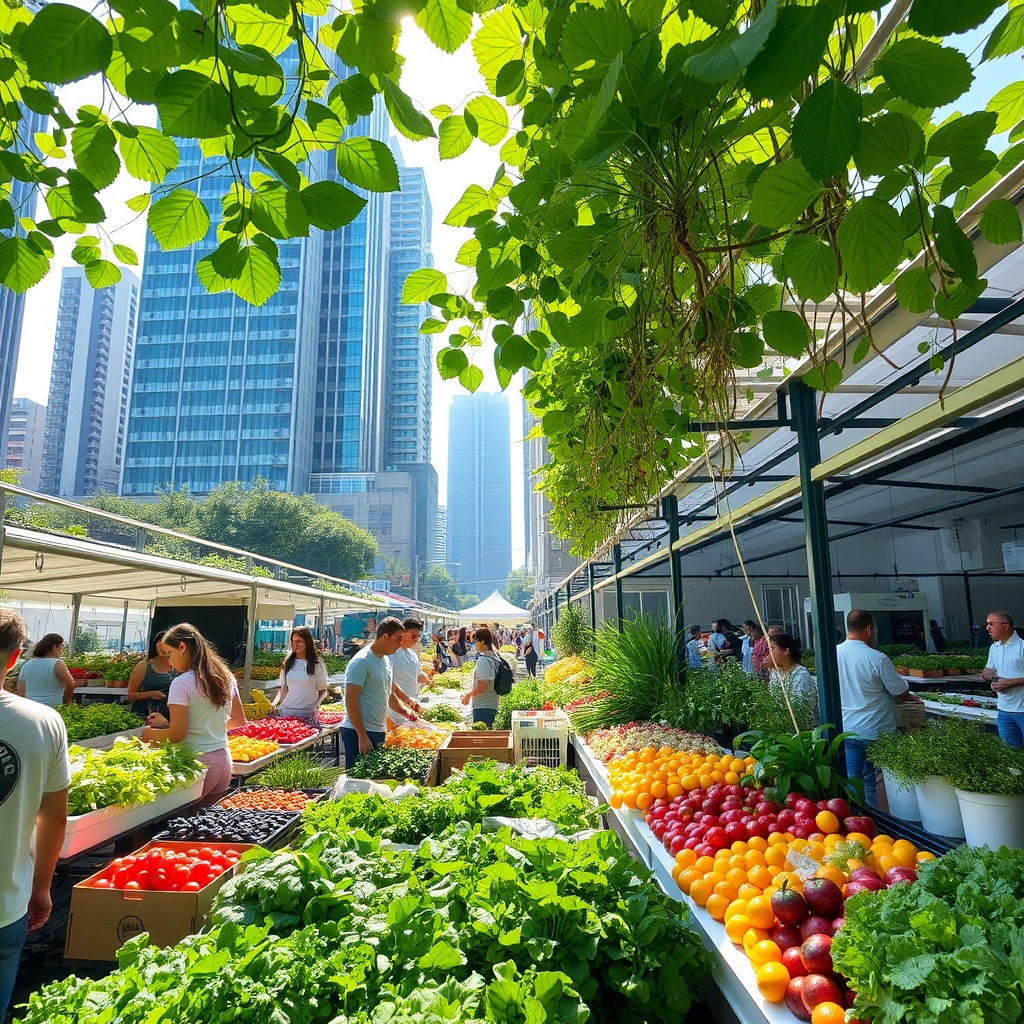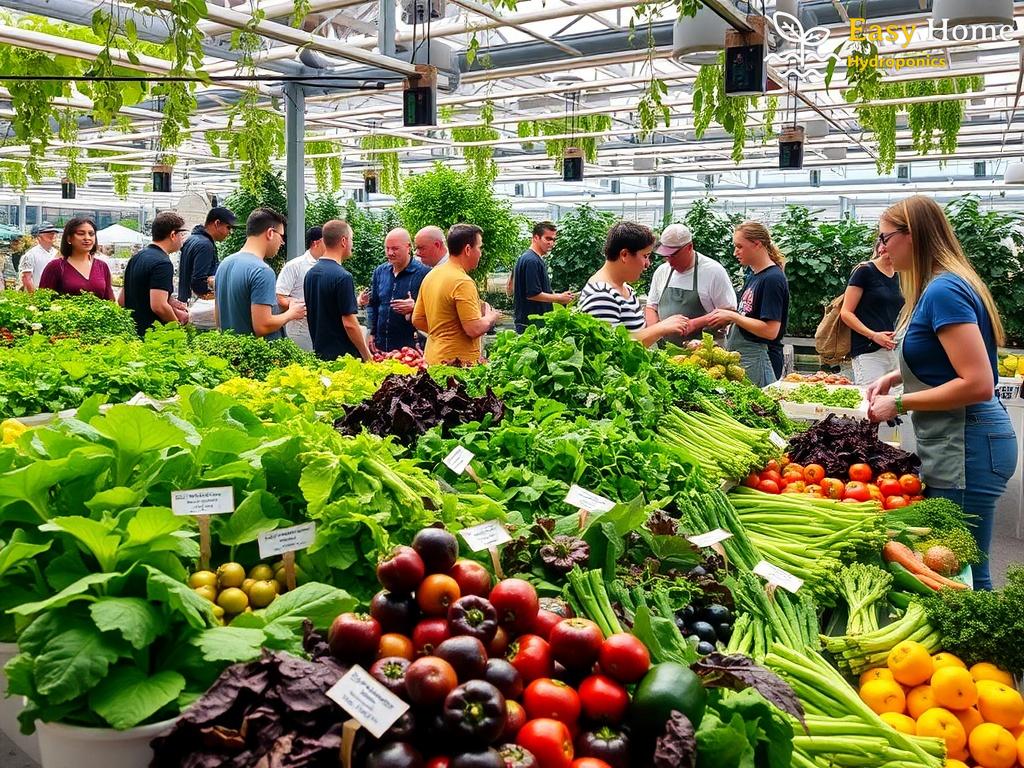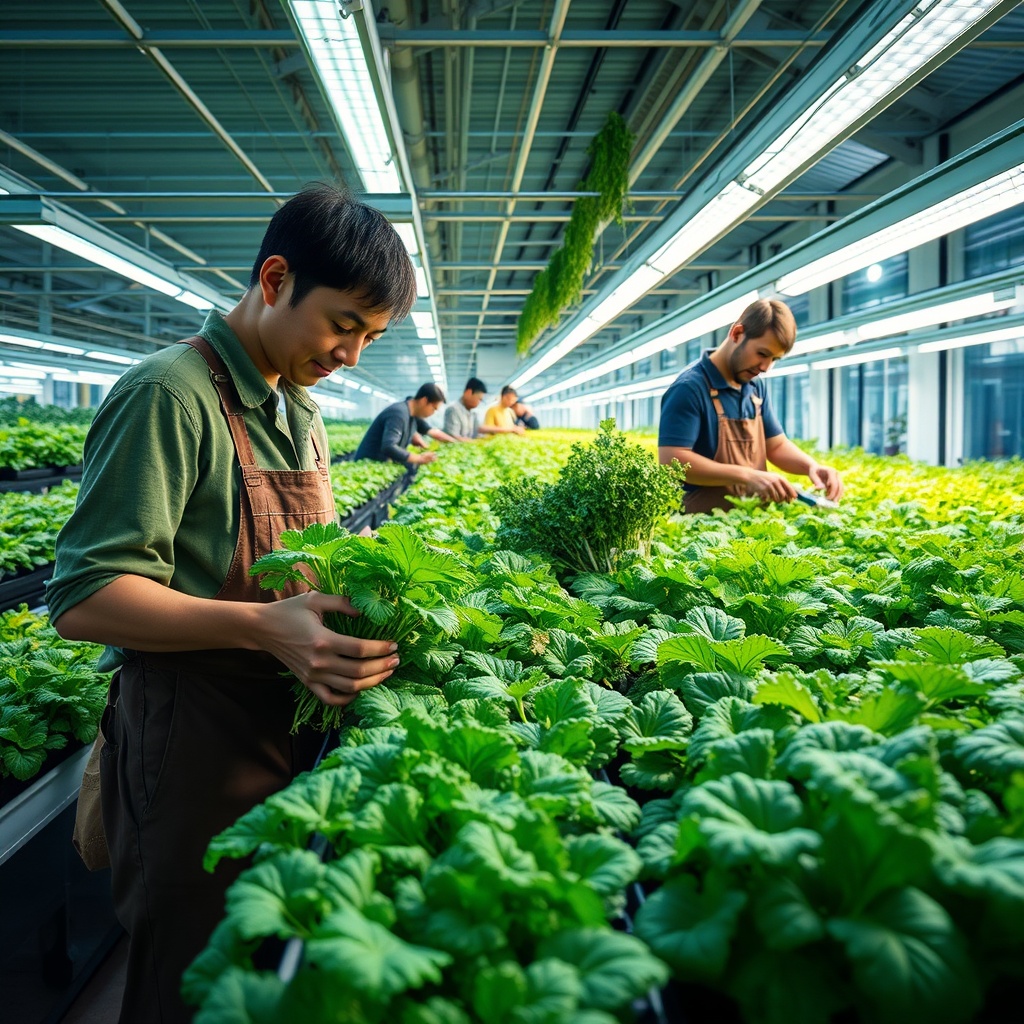In recent years, the rise of hydroponic farming has revolutionized the way we think about urban agriculture. No longer confined to rural areas, farming is finding its way into the heart of cities, bringing fresh produce directly to the urban dweller’s doorstep. This innovative method of growing plants without soil utilizes nutrient-rich water solutions, making it an efficient and sustainable option for urban environments.
As cities grapple with issues such as food deserts, pollution, and the need for sustainable practices, hydroponic farmers markets are emerging as a beacon of hope. These markets not only provide access to fresh, local produce, but also promote community engagement and environmental awareness.
Hydroponic farming presents numerous advantages that are particularly beneficial in urban settings. These benefits extend beyond just the availability of fresh produce; they also touch upon economic, environmental, and social factors. Let’s explore some of the compelling reasons behind the growing popularity of hydroponic farmers markets in cities:
- Space Efficiency: Hydroponic systems require significantly less space compared to traditional farming, making them ideal for urban environments where land is at a premium.
- Water Conservation: Hydroponics uses up to 90% less water than conventional farming methods, a crucial benefit in areas facing water scarcity.
- Reduced Transportation Costs: By growing food within city limits, hydroponic farms minimize the carbon footprint associated with transporting goods from rural farms to urban markets.
- Year-Round Production: Hydroponic systems allow for continuous crop growth regardless of seasonal changes, ensuring a steady supply of fresh produce.
Beyond the tangible benefits, hydroponic farmers markets foster community connections and promote healthier lifestyles. They serve as gathering points, bringing together local residents to share in the experience of sustainable living. Here are some ways in which these markets cultivate community:
- Educational Opportunities: Many hydroponic markets offer workshops and events, educating the public about sustainable practices and healthy eating.
- Local Economy Boost: By supporting local hydroponic farmers, communities can stimulate their economies and create jobs.
- Enhanced Food Security: With increased access to fresh produce, urban areas can combat food deserts and enhance the overall health of their residents.
As we witness the expansion of hydroponic farmers markets, it is evident that these hubs of fresh produce are more than just places to shop—they are vital components of a sustainable urban future.




